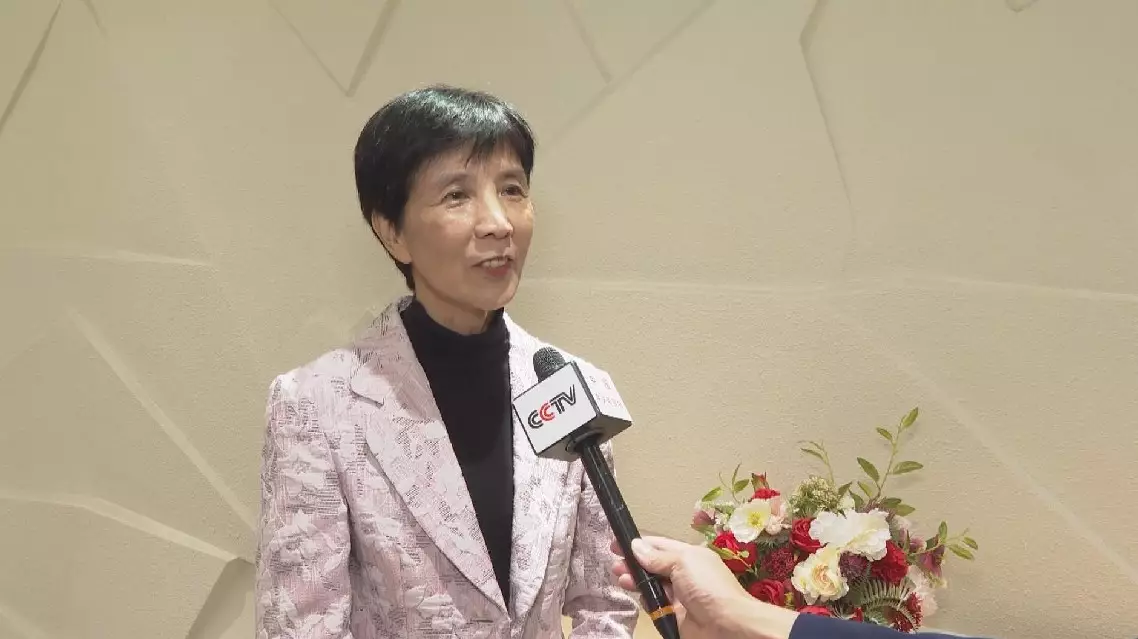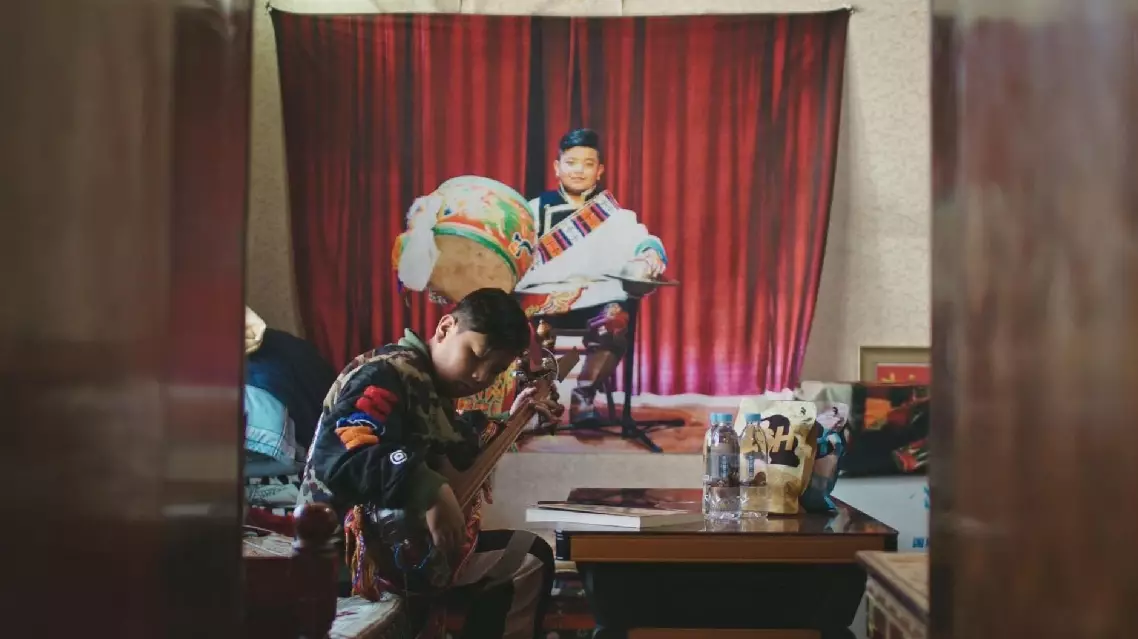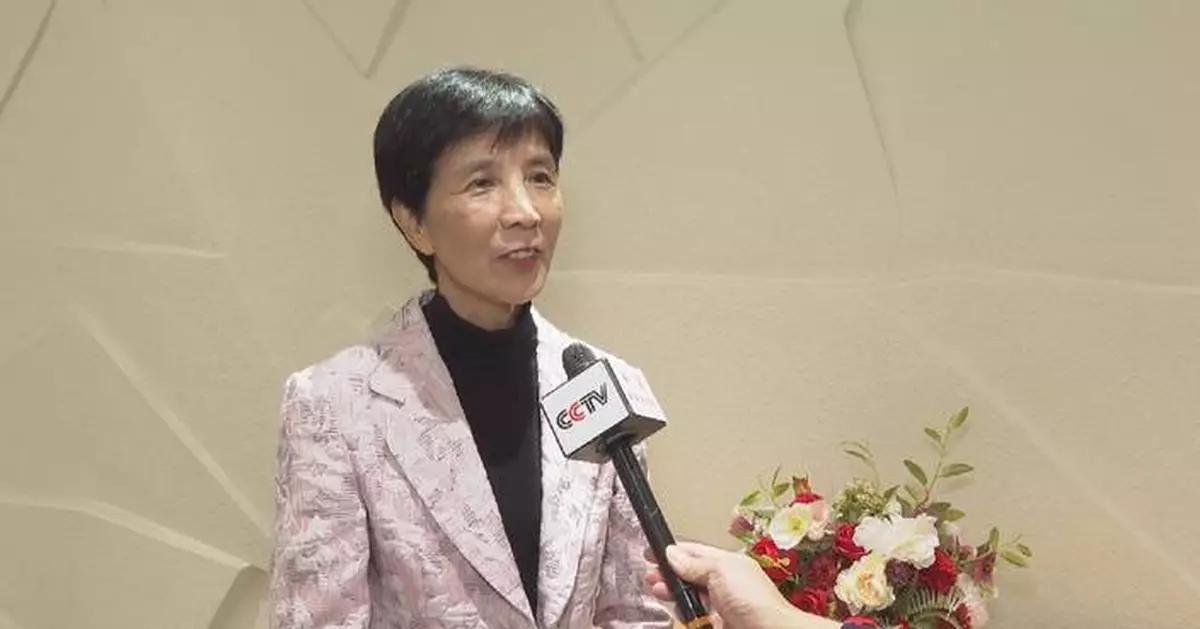People from all walks of life in the Macao Special Administrative Region (SAR) hold high hopes for a brighter future under the leadership of Sam Hou Fai who has been elected by an overwhelming majority as the sixth-term chief executive designate of the Macao SAR.
Sam won the election with 394 votes in favor out of 398 valid ballots.
Ho Sut Heng, a deputy to the 14th National People's Congress (NPC) and president of the Macao Federation of Trade Unions, highlighted the strong anticipation of the public for the realization of Sam's promises with a focus on law-based governance, effective leadership and unity.
"Mr. Sam Hou Fai's platform has garnered high recognition from the public, so his sweeping election victory today is well-deserved. His policies aim to unite all social sectors, and I believe he will successfully lead Macao in better integrating into the overall national development and build Macao into a better place," Ho said.
"I think the election plays an important role in fully implementing the principle of 'patriots administering Macao'. Each vote for Sam represents the hopes of all sectors in Macao for a brighter future. I firmly believe that the new government of the Macao SAR will steer the region's society towards broader development prospects," said Wong Chi Choi, president of the Macao New Chinese Youth Association.
Young residents of Macao have underlined the significance of the election for the youth, hoping that the new chief executive's platform will create more opportunities for them in the future.
"What resonates with me most from his platform is his commitment to better integrating Macao into the country's overall development, and what's more, how we young people can better contribute to the development of the Guangdong-Hong Kong-Macao Greater Bay Area and the Guangdong-Macao in-depth cooperation zone in Hengqin. I hope the new government will put up more favorable policies in this regard," Fong Cho Ho said.
"Young people have been paying close attention to the election. After reviewing Mr. Sam Hou Fai's platform, I knew that he has responded to our needs. I hope that under his leadership, the new government of the Macao SAR will create more opportunities for young people and build a better Macao for all," Ou Wing Yan said.

Macao residents hold high hopes for brighter future under leadership of new government
With dramyin lute and cymbals in hand and dressed in colorful traditional costume, 17-year-old Tenzin Norbu is among the proud youngsters in southwest China's Xizang Autonomous Region who have been helping preserve the centuries-old Tibetan opera, a multifaceted representative of Tibetan art and cultural heritage. Considered a living fossil of Tibetan culture, Tibetan opera is a comprehensive art combining folk songs, dance, storytelling, chant, acrobatics and religious performance. It was included on the UNESCO Representative List of the Intangible Cultural Heritage of Humanity in 2009.
Tenzin grew up listening to Tibetan opera along with his grandmother. The beat of the drum marked the rhythm of his childhood and quietly planted the seed of a dream.
The teenager leads a youth Tibetan opera troupe and guides his peers onto the very stage they once only dreamed of. He named it "Phudor Youth Tibetan Opera Troupe", because "Phudor" means "dream" in the Tibetan language.
"There are about 24 members in the troupe," said the teenager.
Tenzin once received a very special invitation to perform Tibetan opera for the opening ceremony of an art festival in Lhasa.
Although both their parents and teachers felt it's important for the children to be exposed to traditional culture from a young age, they didn't want it to affect their schoolwork.
The performance they were getting ready for was the first Sweet Tea House Art Festival, the troupe's very first public appearance. It's a rare opportunity for the children -- one too precious for them to pass up. But with their parents growing anxious about preparation for the performance eating into valuable study time, the children opted to rehearse in secret at weekends. Tenzin's family runs a tailor's shop. His father, who is hearing- and speech-impaired, is a superb tailor, while his mother helps him out by dealing with customers. Tenzin enjoyed Tibetan opera with his grandmother during childhood and later learned more about it from his uncle.
"Whenever I'm not feeling good, I'll take out the dramyin lute and the cymbals. When I hear the drumbeat, I get a feeling of elation that's simply indescribable," he said.
When Tenzin finally stepped onto the stage at the festival, he noticed that his parents were not in the audience. "My parents didn't have time to come to see my performance. But they always support me. They work hard every day, also for my sake. So, I'm happy whether they were here or not as long as I can keep performing Tibetan opera," said the youngster, believing that his passion for Tibetan opera will last a lifetime.

Childhood dream takes local boy onto Tibetan opera stage






















































